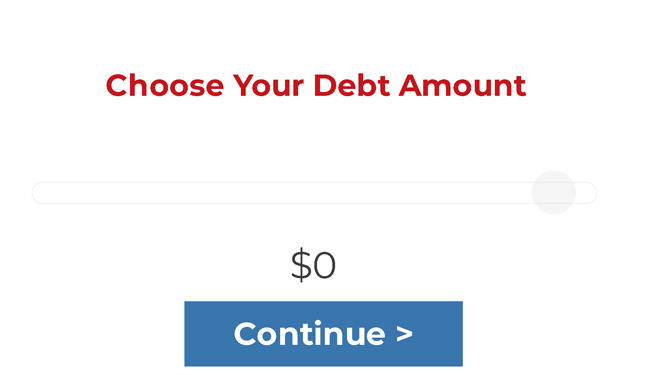Tackling your debt can be a real challenge, especially when you have multiple creditors. If you’re struggling to keep track of different accounts, payment amounts, and due dates, consolidating your debt might be a good pathway for you. However, there are many debt consolidation options available, and not all of them will work for your financial situation
Debt consolidation can be a great way to save money on interest, pay off debts faster, and simplify your finances. There are several ways to implement this strategy, so it’s important to find the right one for you. With careful planning and execution, consolidating your debts can give you peace of mind and help you get back on track financially.
Balance transfer credit cards
If you’re looking to save on interest and pay off your credit card balance, a balance transfer card may be a good option for you. These cards offer introductory periods of 0% APR or low-interest rates for up to 18 months, allowing you to pay down your debt without accruing more interest. Just be sure to pay off your balance before the promotional period ends, or you could end up paying even more in interest than you started with.
Look for a card with a credit limit that covers the amount of debt you’re looking to transfer, and an annual percentage rate (APR) low enough to make the balance transfer worthwhile. A balance transfer calculator can help show how long it will take to pay off your debt with the new card.
| Pros | Cons |
|---|---|
| Faster and easier to get than a loan | Does not tackle any poor spending habits that caused the debt in the first place |
| Potential to save money if you pay off the debt during the introductory period | A fee of 3% to 5% of the amount is usually charged on top of the balance |
| No risk of losing assets because it doesn’t require collateral | The APR after the intro period is likely to be higher than a loan |
| A hard inquiry on your credit report |
With a balance transfer card, you can transfer your existing credit card debt to the new card and then pay it off over time. However, it’s important to be disciplined and avoid running up new debt on the balance transfer card. Otherwise, you’ll just end up in the same situation as before.
Home equity loan or home equity line of credit (HELOC)

Home equity is the difference between what your house is worth and how much you still owe on your mortgage. If you’re a homeowner with equity in your property and good credit history, you may be able to borrow money against that equity at a reasonable interest rate. This can be used to consolidate debts, paying off higher-interest debt such as credit cards.
Home equity loans and HELOCs are both second mortgages that can be used for debt consolidation. If you have enough equity, these can be good options. With a home equity loan, you get a lump sum of money at a fixed rate. With a HELOC, you have a credit line to draw from at a variable rate. Both options add an additional monthly payment to what you’re already paying.
| Pros | Cons |
|---|---|
| Fixed-rate and fixed monthly interest for home equity loans | The home is the collateral that secures the debt |
| Larger loan amounts | Interest on the loan is not tax deductible |
| Long repayment terms | Longer funding timelines on average |
| Lower interest rates than credit cards or personal loans | A longer repayment timeline can mean higher costs in the long run |
| Variable rates for HELOCs |
A HELOC, or home equity line of credit, can be beneficial to finance big projects or consolidate debt. But before opening a HELOC, it’s important to compare interest rates and terms from different lenders. It’s also crucial to be disciplined about using and repaying the debt.
Debt consolidation loan
Debt consolidation loans can be very helpful if you are struggling with multiple debts. By consolidating your debts into one loan, you can often get lower interest rates and more manageable monthly payments. These loans are unsecured, so your rate and borrowing limit will depend on your credit profile.
If consolidating debt is something that interests you, then taking out a personal loan to cover the balances of your outstanding debts is an option worth considering. With a personal loan, instead of making multiple payments to different creditors each month, streamlining the process by having just one monthly payment to make can be advantageous.
| Pros | Cons |
|---|---|
| Collateral is not required | Loans can come with fees for origination, late payments, and prepaying early |
| Funding and approval can be fast from many lenders | Low rates require excellent credit |
| Loan amounts range from $1,000 to $100,000 | Scams are rampant in the debt consolidation loan marketplace |
| Lower interest rates than credit cards in many cases |
Are you struggling to keep up with multiple debts? A consolidation loan could help you take control of your finances. You may be able to secure a lower interest rate and have one monthly payment instead of many. A good credit score is usually needed to qualify for the best rates, but there are options available for those with bad credit.
A consolidation loan could help you take control of your finances. You may be able to secure a lower interest rate and have one monthly payment instead of many. A good credit score is usually needed to qualify for the best rates, but there are options available for those with bad credit.
Peer-to-peer loan
P2P lending platforms are a great way to get unsecured loans, without having to go through a bank. You can usually borrow anywhere from $25,000 to $50,000, and the interest rates are often quite low. The key factor that determines the terms of your loan is your credit history. The better your credit score, the lower the interest rate and the more money you can borrow.
| Pros | Cons |
|---|---|
| Application, approval, and funding are generally fast | Fees may apply |
| The initial application uses a soft credit check | High-interest rates with bad credit |
| Lower credit scores may still qualify | Less time to repay the loan than with credit cards and home equity loans |
| Potentially higher monthly payments because of shorter repayment terms | |
| Rates are generally higher than those on home equity loans |
When it comes to peer-to-peer lending, the requirements for borrowers are not always as stringent as with other types of borrowing. Some P2P lenders will accept applicants with lower credit scores. However, it’s important to compare the fees and interest rates of P2P loans with other options before deciding to use this type of loan.
Debt management plan

Debt management plans can provide relief from overwhelming debt without taking out a loan or applying for a balance transfer credit card. These plans may be a good choice for people who are struggling to make ends meet and are considering bankruptcy.
This involves working with a nonprofit credit counseling agency or a debt relief company. They will negotiate on your behalf and help you come up with a payoff plan. As part of the plan, you will close all credit card accounts and make one monthly payment to the agency which will then pay off your creditors.
| Pros | Cons |
|---|---|
| Credit scores can improve over time | Credit scores will generally lower for a while |
| Free options from some organizations if you need it | Many non-profit organizations have strict requirements on how you use money while you go through the plan |
If you’re struggling to repay your debts, a debt management plan could be a good option for you. These types of plans can help you restructure your repayment terms so it’s more manageable. However, not all debts qualify for this type of treatment, so you’ll need to do some research to see if your specific situation qualifies.
How to avoid falling into debt
If you’re in debt and borrowing more money to consolidate, it’s time to take a close look at your spending habits. According to Celeste Collins, executive director of OnTrack WNC Financial Education & Counseling in North Carolina, you need to identify where the debt came from and make a plan to pay it down. “You need a comprehensive cash flow plan and to get serious about paying this down,” she says. Making changes now could help you get out of debt and avoid future financial problems.
If you want to avoid getting into debt again, here are some rules to live by:
- Create a budget and stick to it. Live within your means.
- Avoid impulsive purchasing.
- Shop around for the lowest prices before making a big purchase.
- Pay off your credit card balance each month to avoid interest charges.
- Keep your finances organized and closely monitor your bank balances.
- Stay clear from “buy now, pay later” and “interest-free financing” offers. They just defer your debt.
- Save money. Try to always set aside a percentage of your income for savings.
Best Debt Consolidation Options – The Bottom Line

When considering debt consolidation options, it is important to compare interest rates, loan terms, and fees from different lenders. This will help you find the best strategy for your situation.
As much as possible, avoid subprime lenders that offer their services to people with bad credit. These types of lenders usually have the highest interest rates and inflexible loan terms. Even though your credit score may be lower, it would still be better to shop around with traditional lenders first.
There are a few things to keep in mind when looking for a legitimate lender. Checking reviews from past and current customers on platforms such as the Better Business Bureau (BBB) or Trustpilot is always a good idea. You should also make sure the lender is registered in your state and that their website looks legitimate. Finally, you can contact your state’s attorney general’s office for further verification.






